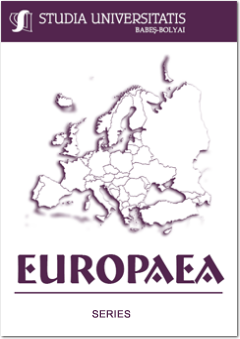DIE POLITISCHE KOMMUNIKATION UND DER RUMÄNISCHE REGIONALISIERUNGSREFORMVORSCHLAG VON 2013 – EIN DOPPELTER DISKURS?
THE POLITICAL COMMUNICATION AND THE ROMANIAN REGIONALISATION REFORM PROPOSAL OF 2013 – A DOUBLE DISCOURSE?
Author(s): Romana SălăgeanuSubject(s): Constitutional Law, Public Administration, Politics and communication
Published by: Studia Universitatis Babes-Bolyai
Keywords: political communication; legitimacy; politics; actors; message; receiver.
Summary/Abstract: The government programme of the government which started its mandate after the 2012 parliamentary election entailed a regionalisation and decentralisation reform, which was supposed to be a very large reform for Romania. However, the reform remained stuck in the communication process. This paper looks into whether the Romanian political actors pursued a double strategy by presenting different aspects of the reform to different actors. The first part of the paper entails a theoretical perspective on the political communication and the analysis frame. The second part presents the analysis that considers the following elements: the context of the reform, the pursued goals of the Romanian political actors and the receiver-actors towards who the communication took place. Therefore, the paper explains the communication that took place with regard to the proposed regionalisation reform from 2013, which has been further postponed.
Journal: Studia Universitatis Babes-Bolyai - Studia Europaea
- Issue Year: 61/2016
- Issue No: 2
- Page Range: 61-79
- Page Count: 19
- Language: German

